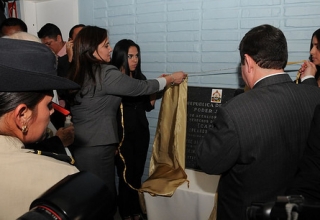Reduction of barriers to access to justice
In 2008, the Ibero-American Judicial Summit, with the support of EUROsociAL (first phase), prepared the 100 Brasilia Rules, which primarily concern access to justice by vulnerable persons from the position of demanding that judicial systems serve as real instruments for defending people's rights, especially those of the most vulnerable.
The second phase of the programme resumed this line of action and focused on effective application of the Brasilia Rules, promoting effective access to the justice system through the elimination of barriers that limit or prevent the exercise of fundamental rights by vulnerable populations.
Specifically, this action is improving procedural aspects identified as barriers to access to justice through protocols of best practices.
In terms of lines of work, each country has focused the intervention on a target vulnerable group: persons with disabilities (Argentina), young Afro-Brazilians (Brazil), elderly adults and minors involved in family-related judicial processes (Chile), persons with auditory and psychosocial disabilities (Costa Rica), women in situations of domestic violence (Honduras), incarcerated persons and persons with psychosocial disabilities (Paraguay), and indigenous communities (Peru).
Go to the sheet for the line of action
Highlighted experiences:
Operational Partners
 |  |  |

